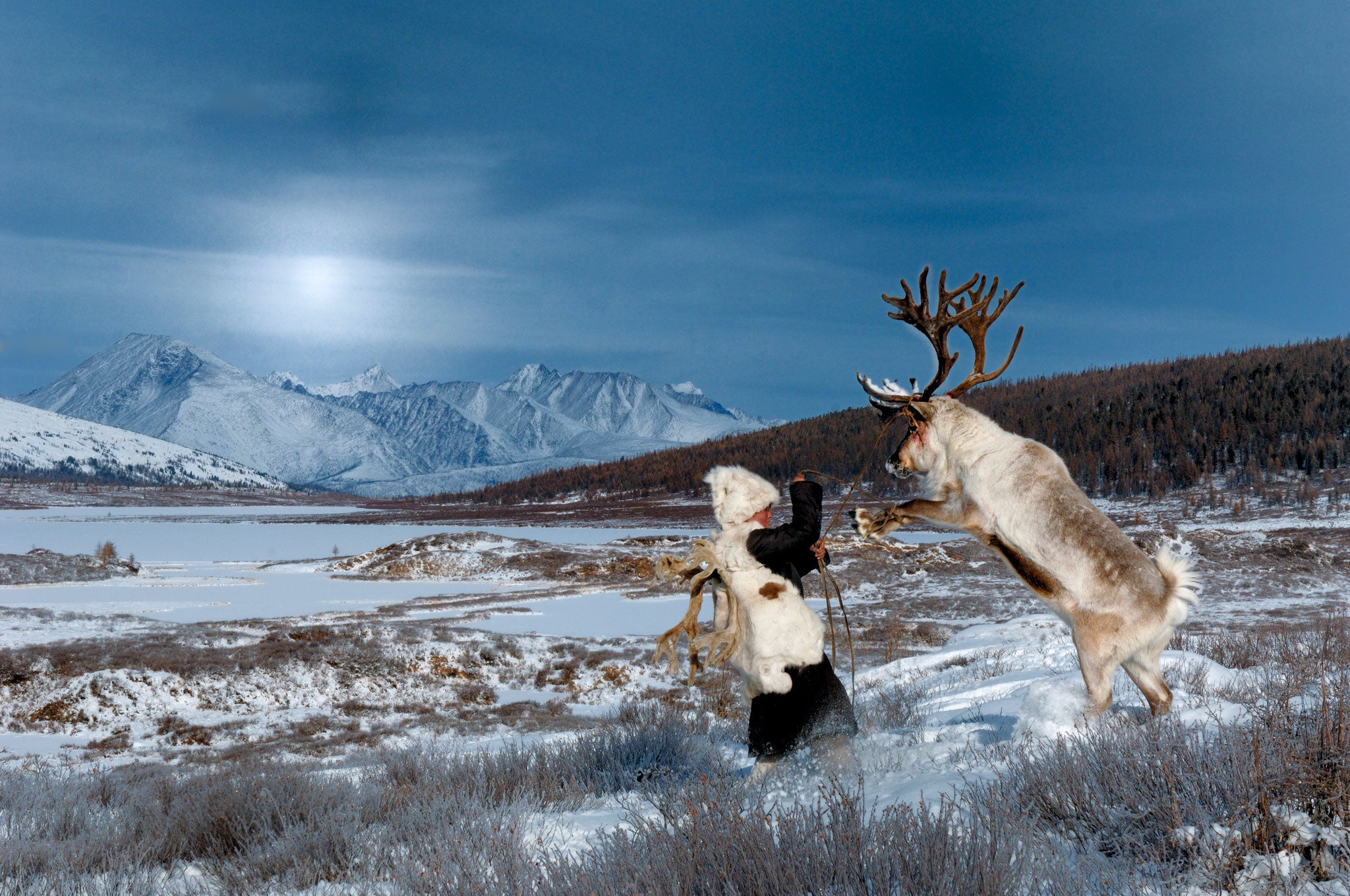Mongolia's Dukha tribe, and the reindeer they can't live without
They hunt, sleep and pray with them. But thanks in part to modern conservation, the Dukha people's extraordinary symbiosis with Mongolia's reindeer is under threat

Your support helps us to tell the story
From reproductive rights to climate change to Big Tech, The Independent is on the ground when the story is developing. Whether it's investigating the financials of Elon Musk's pro-Trump PAC or producing our latest documentary, 'The A Word', which shines a light on the American women fighting for reproductive rights, we know how important it is to parse out the facts from the messaging.
At such a critical moment in US history, we need reporters on the ground. Your donation allows us to keep sending journalists to speak to both sides of the story.
The Independent is trusted by Americans across the entire political spectrum. And unlike many other quality news outlets, we choose not to lock Americans out of our reporting and analysis with paywalls. We believe quality journalism should be available to everyone, paid for by those who can afford it.
Your support makes all the difference.Hamid Sardar first visited the Dukha people, an endangered tribe of nomadic hunters in Mongolia, in 2000, when he was working for an American university. Fascinated, he sensed an opportunity to "make a collection of photographs of a culture that was about to change drastically". Sardar has since returned many times, befriending the tribe and braving avalanches to record the Dukha's hard lives, centred around their relationship with reindeer.
"I study languages but I veered into ethnography," he explains. "I was always taking photographs on the side and I managed to integrate it into my research. That research, in turn, gave me certain insights that I wanted to capture on film, such as the spiritual connection with reindeer."
In this marshy, mountainous land, unsuitable for horses, the reindeer are vital for the Dukha, who ride them when hunting and use them to transport belongings from camp to camp. The reindeer, meanwhile, need to stay on the move to find food, and travel between high and low ground depending on the season. But the relationship goes deeper.
"The deer is a totem and each person in the tribe is connected to one spirit deer which protects that person, absorbing all disease," says Sardar. "The Dukha do not have enough reindeer to use them for meat, so the only time they eat deer is when the spirit deer dies; it's a ritual, almost Christian – [like] eating the body of Christ. The shamans also transform into spirit animals, crossing over into the spirit world to commune, and sometimes the spirits come over in the guise of an animal. It's very beautiful when you go into the forest, because every animal they encounter is loaded with hidden significance."
Their way of life, however, is now under threat, in part self-induced. The Dukha are staying closer to towns so that their children can be near hospitals and schools; some even trained as vets in the Mongolian capital Ulaanbaatar, and are now integrating veterinary science with their traditional beliefs. However, if the deer don't keep moving, they suffer. "They are caught in this crossroads," says Sardar. "Do they stay close to their kids in town, or do they move around for the sake of their reindeer? Often, families split up for the winter then gather together on the plateaus for summer, when the children are out of school and it's an easier way of life. Then, from September, the reindeer can be herded by a single person while the rest of the family stays in town."
Further challenges come from the Mongolian government, which now protects some of the animals the Dukha once hunted – including moose, red deer and bear – in the name of conservation. "This is basically a traditional tribe who ride reindeer through an inhospitable terrain to hunt other species – but those species are now on the endangered list," says Sardar.
The Dukha are given compensation, which they spend on cows and goats, thus cementing their increasingly static existence. But the agreements mean the Dukha are no longer permitted to visit forests that contain sable and squirrel – as well as the shrines of their ancestors – since these have been turned into nature reserves. "They bury the drums and clothes of shamans among the trees," says Sardar. "It becomes a shrine, where they pray to their ancestors. Now you're forcing a culture to change its ways so drastically – its hunting, its migration and even its passage to its ancestral shrines. This is their culture and, with these pressures from outside and within, that culture is in a precarious place."
For more: hamidsardarphoto.com
Join our commenting forum
Join thought-provoking conversations, follow other Independent readers and see their replies
Comments